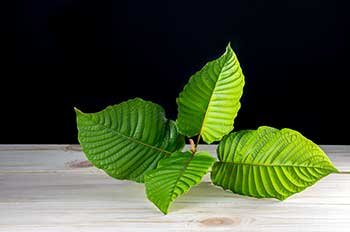
Addiction, Self-Awareness, and Recovery
3 September 2020
(DE)prescribing Opioids
3 September 2020What is Kratom?
Kratom is a tropical plant grown in Southeast Asia. For centuries, it has been used for pain relief and as a mild stimulant. The leaves of kratom, from the same family as the coffee plant, can be chewed, dried and smoked, or made into tea or capsules. Kratom is an opioid agonist, meaning it is structurally different than opioids, but activates the same receptors, resulting in its opioid-like effects. Exceeding its traditional uses, kratom is now being used to treat opioid addiction, by diminishing the withdrawal symptoms typically associated with discontinued opioid use.
Could Kratom Aid in Drug Addiction Treatment and Drug Rehab?
There is anecdotal evidence that kratom helps in opioid addiction treatment, by decreasing withdrawal symptoms. Kratom’s effects include euphoria, sedation, pain relief and anxiety relief, making it a potentially useful tool for opioid and opiate addiction treatment. Because kratom activates the same receptors as opioids, it is able to diminish the withdrawal symptoms which result from the cessation of opioid use. However, it activates a different class of opioid receptors than heroin or prescription opioids, allowing it to decrease withdrawal symptoms without causing the same high these drugs do. Although there is a great deal of anecdotal evidence seemingly pointing towards kratom as an effective tool in treating opioid addictions, there have yet to be any experimental or clinical studies which truly assess the scientific validity of kratom in opioid addiction treatment.
What Are the Risks?
Despite the many advocates for the use of kratom in opioid addiction treatment, there are still some question about its own addictive properties. Just as with any psychoactive substance, there is a risk of addiction. There are examples of addiction to kratom following daily use, highlighting the care with which self-treatment of opioid addiction with kratom should be undertaken. In addition, there are serious side-effects associated with kratom use, including hallucinations, paranoia, and in some cases hypothyroidism and liver damage. Finally, because kratom is sold as an herbal supplement, so there is less government oversight than approved drugs require. Without such regulation the risks of kratom use may also include the ingestion of unintended substances.
Moving Forward in Opioid Addiction Treatment
As our nation faces a debilitating opioid crisis, Searidge Foundation stays up to date on all of the current possibilities to make opioid addiction treatment more successful, and drug rehab a more comfortable experience. Currently, although anecdotal evidence shows promise for kratom’s role in opioid addiction treatment, there remains a lack of scientific evidence. As such, we will continue to offer first-class, evidence-based opioid addiction treatments in our drug rehabilitation centre. Who knows—someday kratom may be incorporated in these evidence-based treatments!




